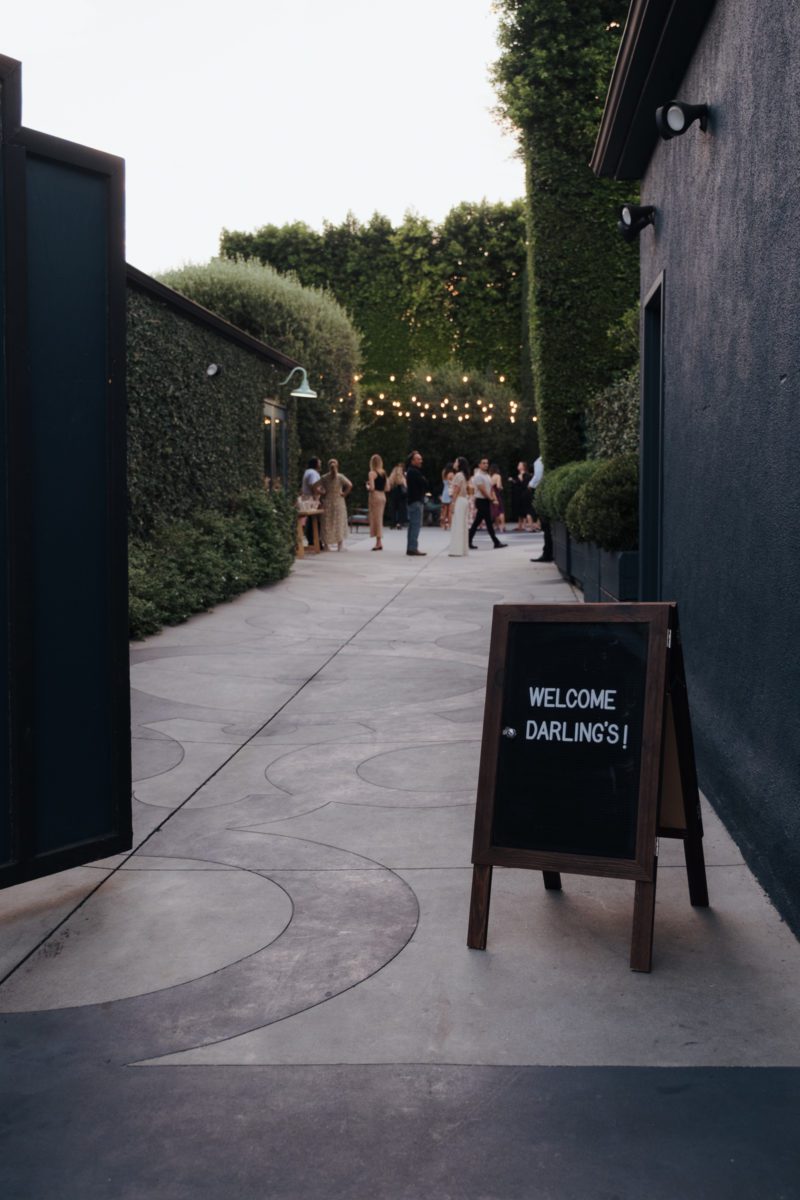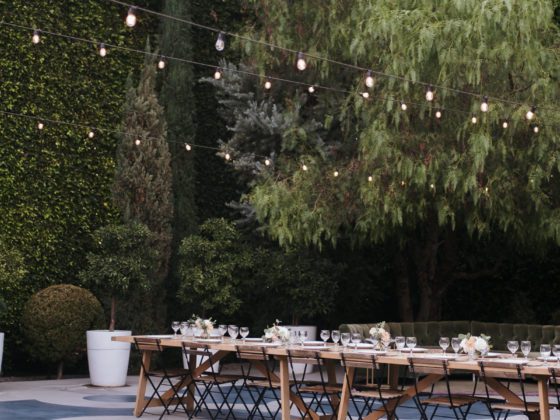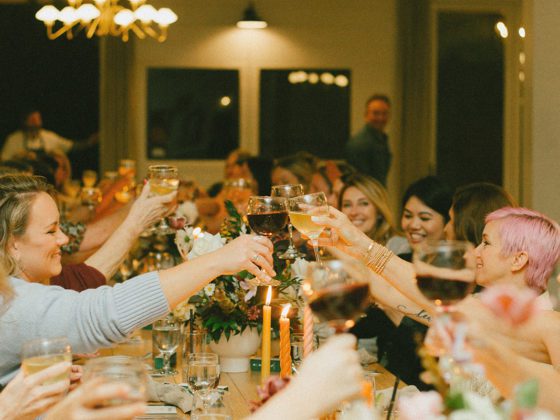“I was bullied as a child; I was the smallest kid at school, I had red hair and glasses…”
When I heard these opening words from our hosting partner, Steve Fortunato, at our latest Darling Dinner, my whole heart was instantly engaged. There’s something about seeing a grown adult share vulnerably from their childhood. You can picture them in context; you can imagine it being you. You want to give them a hug right then and there because the feeling of not being enough or “lacking” is universal.
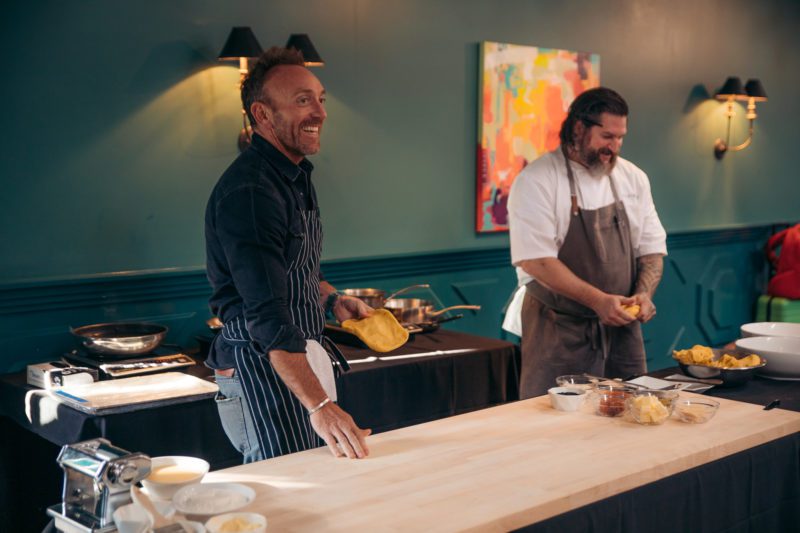 He went on to say that through these bullying experiences, he developed a hard exterior, and a deep need to prove himself. He was constantly trying to be “enough,” or even “more”—trying to present an exterior story that conflicted with the inner one. He realized that in himself, and in his industry of hospitality, so much happened, that was about people proving how talented they were. He defines hospitality as the art of making people feel valued. And he realized it’s hard to make people valued, while trying to prove our own value. Through that process and a lot of growth, he learned that he was enough; that he could affect others through simply just being himself—as he says, “showing his cards and not his trophies.”
He went on to say that through these bullying experiences, he developed a hard exterior, and a deep need to prove himself. He was constantly trying to be “enough,” or even “more”—trying to present an exterior story that conflicted with the inner one. He realized that in himself, and in his industry of hospitality, so much happened, that was about people proving how talented they were. He defines hospitality as the art of making people feel valued. And he realized it’s hard to make people valued, while trying to prove our own value. Through that process and a lot of growth, he learned that he was enough; that he could affect others through simply just being himself—as he says, “showing his cards and not his trophies.”
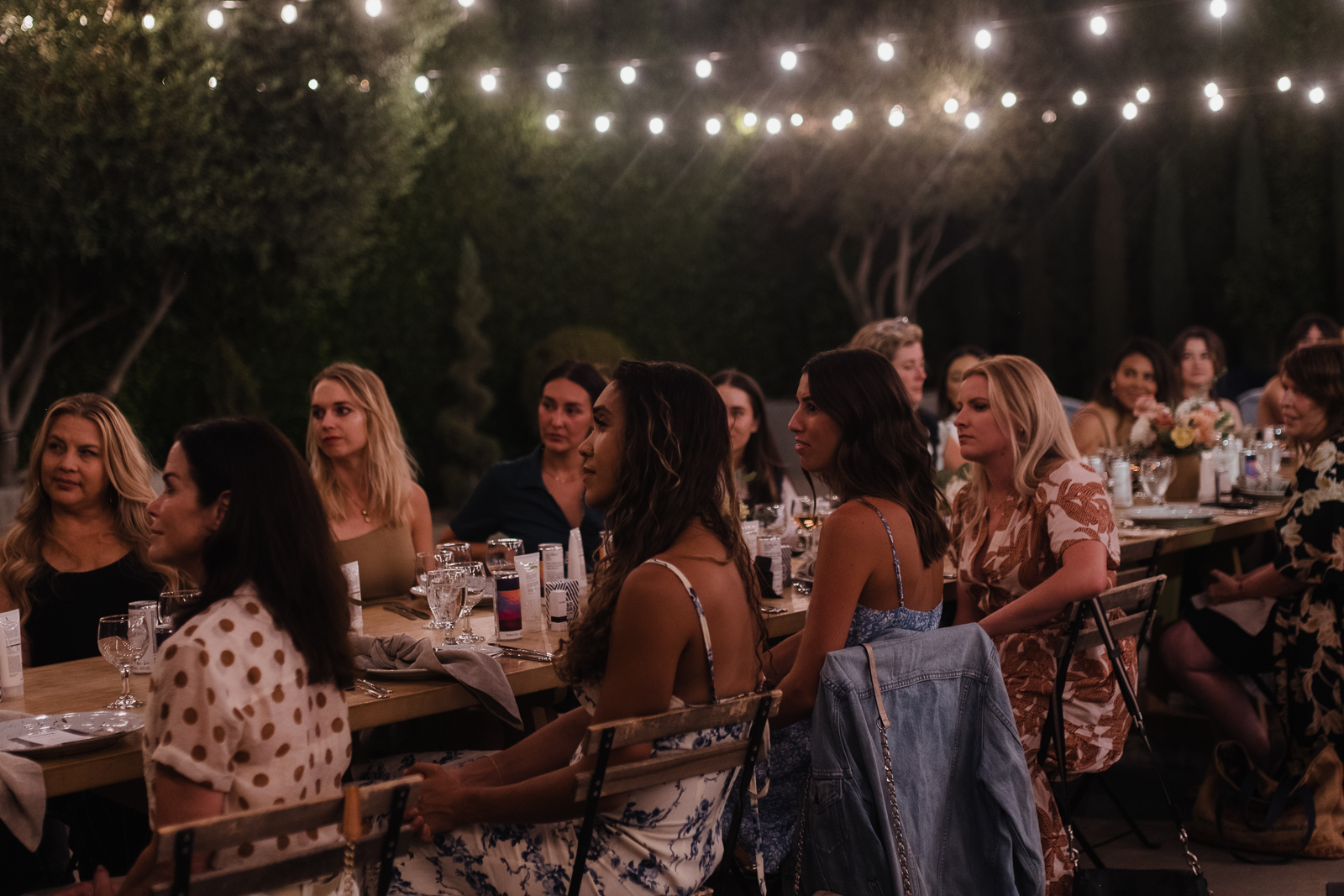 As I sat with 30 other women and heard him relate this story and where it brought him today—as the pioneer of a catering (roomforty) and events company called Hospitality Collaborative—we were deeply impacted. As a venue and catering partner for our Darling Dinner, we didn’t expect to truly learn the important lessons his company brought forward in their service to us in such an impactful way. Typically, dinners are all about the perfect food, the ideal presentation, and Pinterest-worthy images afterwards. To be sure, the food and service was amazing. But this evening and their posture of disruptive hospitality changed us for good—we were challenged to think about the way we gather, how we show up, and to what end.
As I sat with 30 other women and heard him relate this story and where it brought him today—as the pioneer of a catering (roomforty) and events company called Hospitality Collaborative—we were deeply impacted. As a venue and catering partner for our Darling Dinner, we didn’t expect to truly learn the important lessons his company brought forward in their service to us in such an impactful way. Typically, dinners are all about the perfect food, the ideal presentation, and Pinterest-worthy images afterwards. To be sure, the food and service was amazing. But this evening and their posture of disruptive hospitality changed us for good—we were challenged to think about the way we gather, how we show up, and to what end.
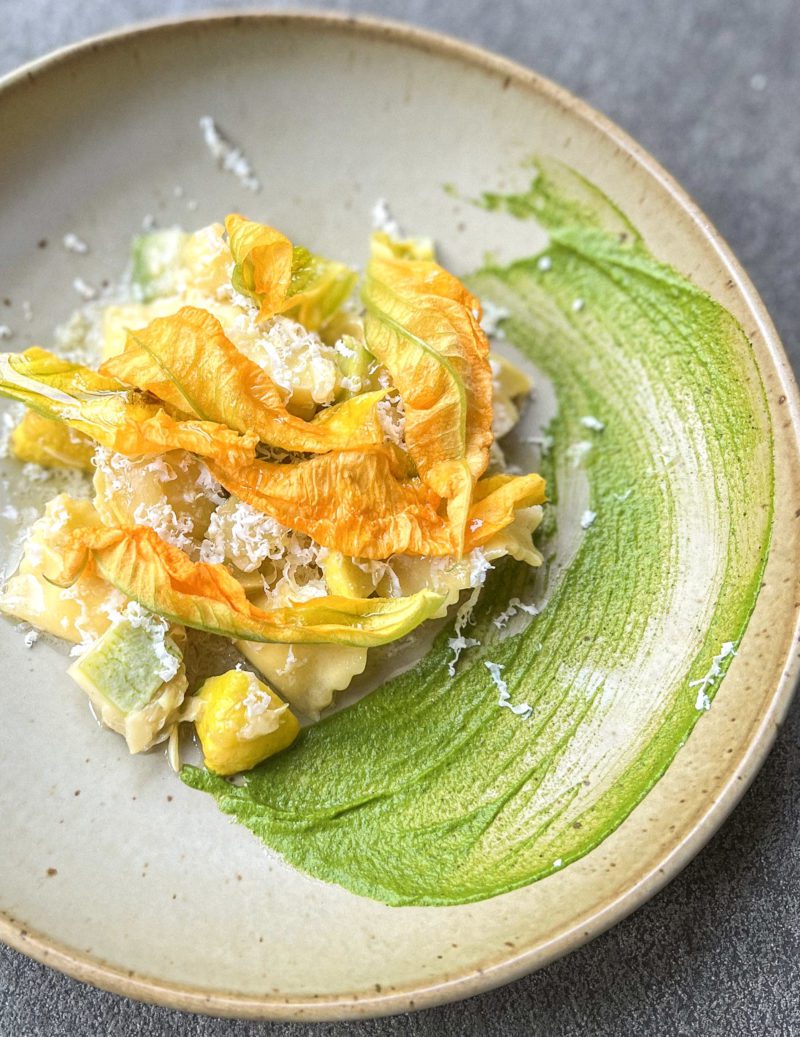 Personally, I found myself in his story. I realized that I, too, want to be perceived a certain way, and in that need, am always thinking about how to impress, to have it all together, or be admired. But as Steve says, “we need to get out of our own way” when we are hosting and welcoming others.
Personally, I found myself in his story. I realized that I, too, want to be perceived a certain way, and in that need, am always thinking about how to impress, to have it all together, or be admired. But as Steve says, “we need to get out of our own way” when we are hosting and welcoming others.
Although I could write 10 articles on all he said that night, I want to zoom in specifically deeper here on his philosophy of what “showing your cards and not your trophies” truly means in the ways we host in the comfort of our own home.
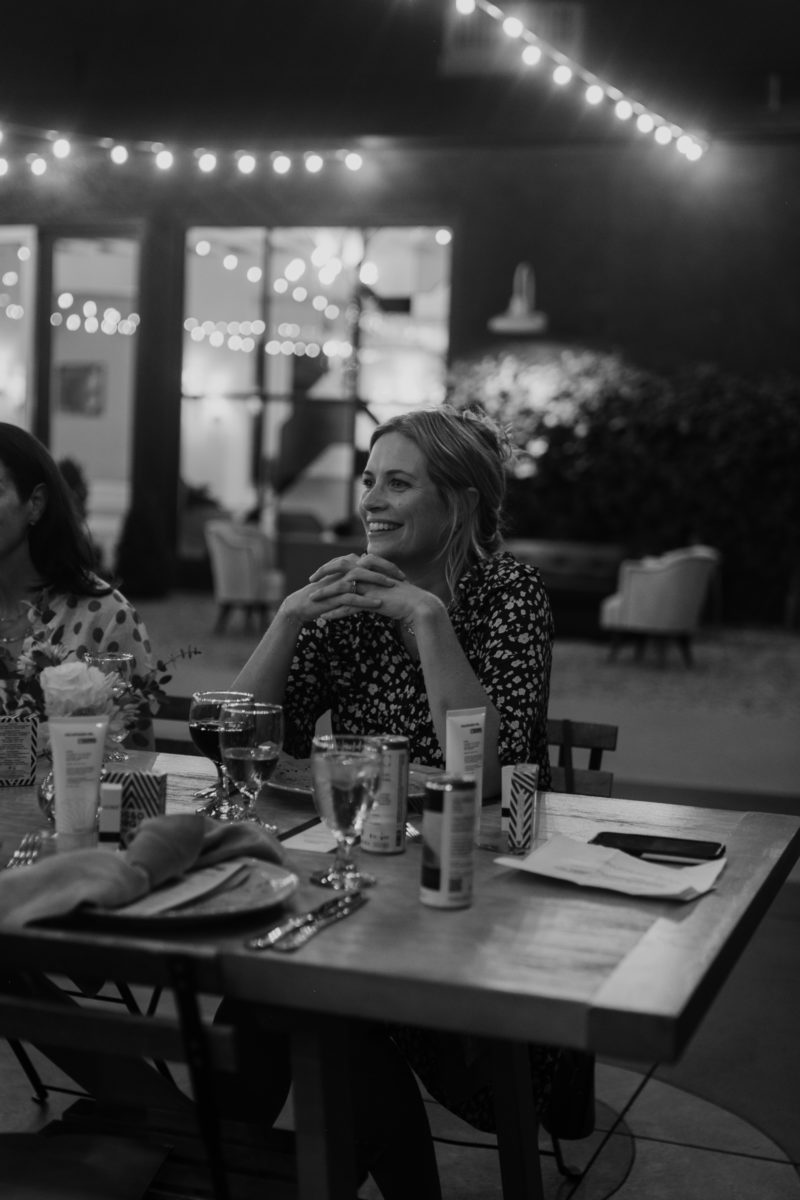 First, it brings up the worthy question: How often do we not host because we are ashamed of the size of our home, our lack of fancy décor, our plates or serving utensils, or our level of cooking ability? Think about that; how often does this hinder you from having people over and truly connecting?
First, it brings up the worthy question: How often do we not host because we are ashamed of the size of our home, our lack of fancy décor, our plates or serving utensils, or our level of cooking ability? Think about that; how often does this hinder you from having people over and truly connecting?
We need to ask ourselves where these feelings originated from and reflect on why we are we trying to pretend like we are better, more composed, or have it together? The essence of life itself is making sense out of chaos; of learning to live in the middle, in the beautiful, messy unknown.
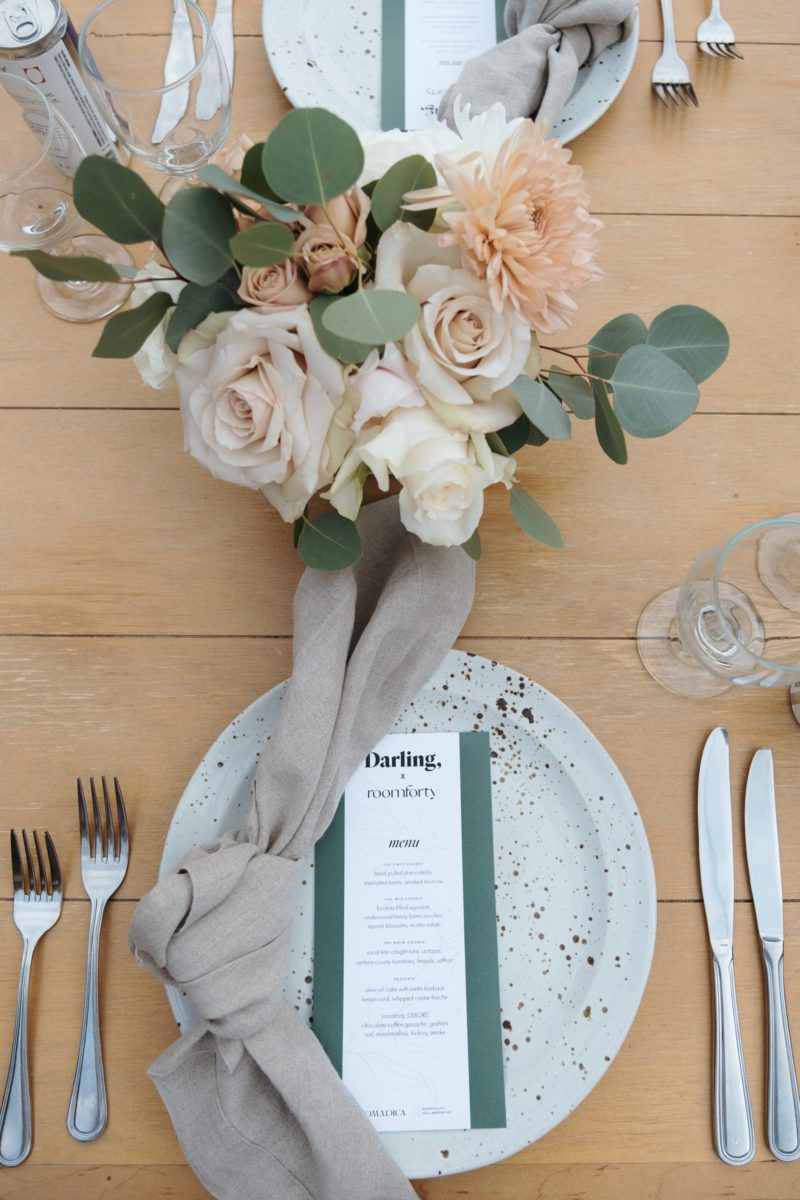 What if we decided to set these things aside; to simply not worry about them, to focus on what we ourselves have to give, and what “cards” we can show that just might help someone entering our home feel slightly more known and seen?
What if we decided to set these things aside; to simply not worry about them, to focus on what we ourselves have to give, and what “cards” we can show that just might help someone entering our home feel slightly more known and seen?
Second, it stirs up the question of how we spend our time. Take a moment to think about the time you have left in your life (I know, intense…) and how many moments, days, and years you have to spend. How do you want to spend those? Fearful, alone and disconnected yet composed, or free from expectations, imperfect and connected?
 What we often forget is that we all have baggage we carry around. We have thoughts that nobody knows, fears of being excluded or unwanted, and even perceptions that are most of the time, untrue. We can’t afford to waste any more of our precious time living in a place of fear of being known.
What we often forget is that we all have baggage we carry around. We have thoughts that nobody knows, fears of being excluded or unwanted, and even perceptions that are most of the time, untrue. We can’t afford to waste any more of our precious time living in a place of fear of being known.
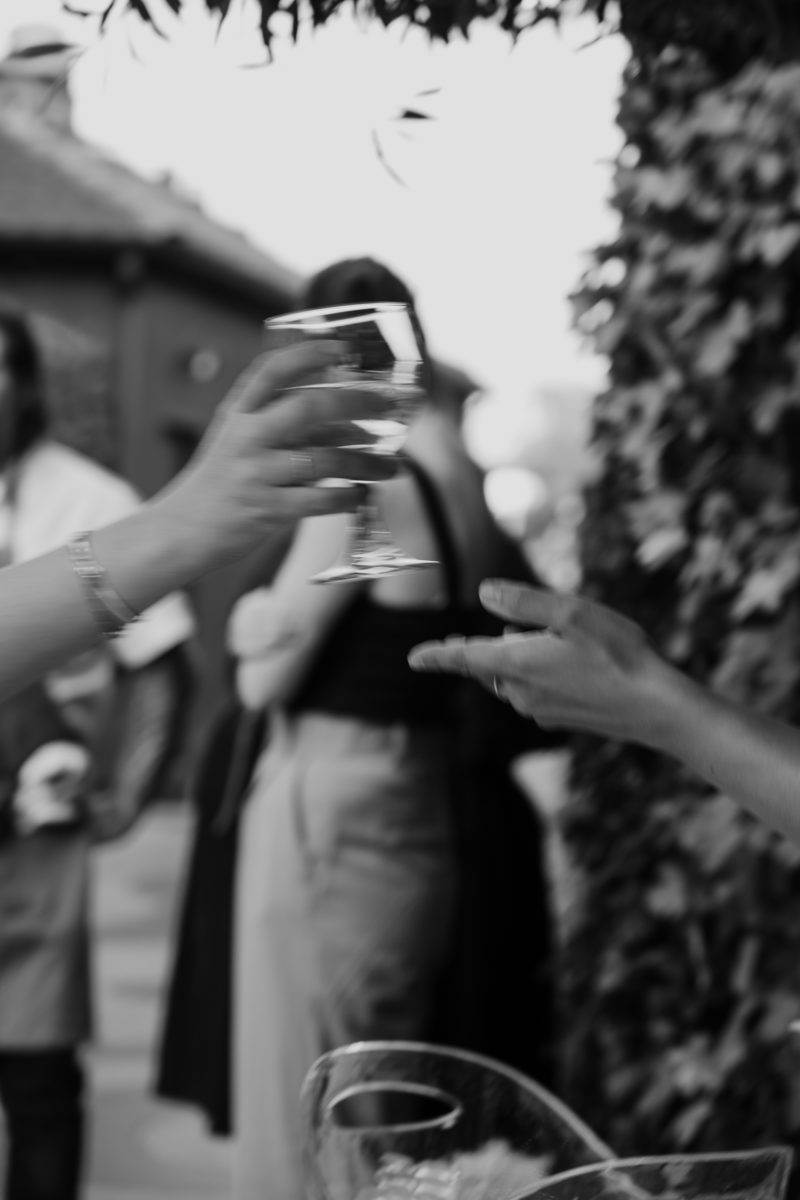 As Steve would say, we’ve been conditioned a certain way—through advertising, through media, through our own dear friends’ Instagram feeds—to seek perfection and hide our flaws—to put forth a story that simply isn’t true. Yet just as Darling disrupted this idea through presenting a different alternative, so is Hospitality Collaborative going first. They are going first in showing cards; in making people feel included in their story as chefs and hosts and those that serve.
As Steve would say, we’ve been conditioned a certain way—through advertising, through media, through our own dear friends’ Instagram feeds—to seek perfection and hide our flaws—to put forth a story that simply isn’t true. Yet just as Darling disrupted this idea through presenting a different alternative, so is Hospitality Collaborative going first. They are going first in showing cards; in making people feel included in their story as chefs and hosts and those that serve.
 What a simple, beautiful lesson, right? Think about this next time you go to say “no” to someone dropping by; think about it before you don’t host a dinner party; think about it before you choose to withhold vs. share. The more you show your cards, the more others will show theirs, and in that process, magic happens.
What a simple, beautiful lesson, right? Think about this next time you go to say “no” to someone dropping by; think about it before you don’t host a dinner party; think about it before you choose to withhold vs. share. The more you show your cards, the more others will show theirs, and in that process, magic happens.
To find out more about roomforty and Hospitality Collaborative and partner with them, visit www.hospitalitycollaborative.com
Darling Dinner images via Megan Williams and Steve Fortunato portrait by Rhianna Israni

